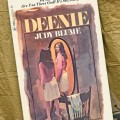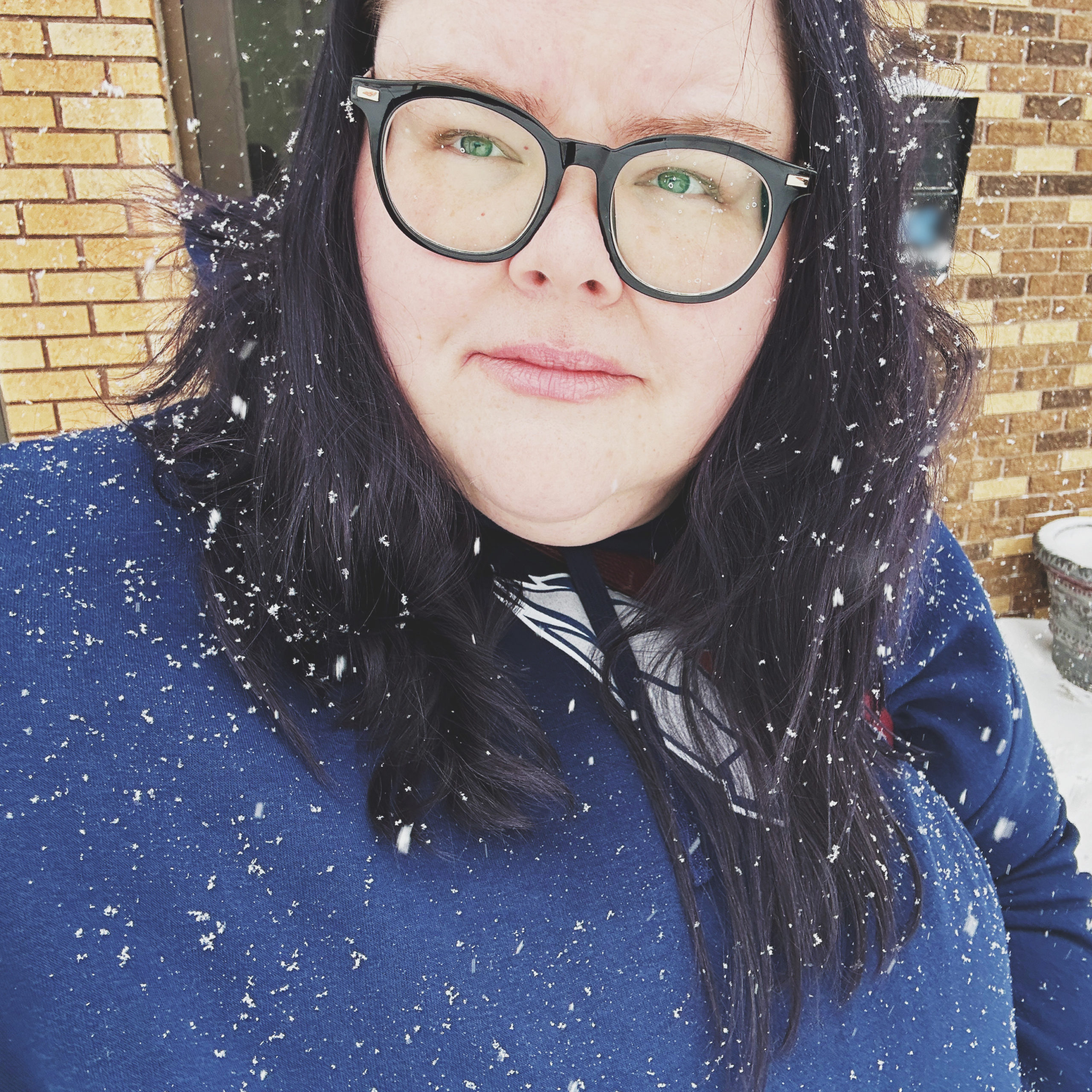Dear Judy,
It’s Not the End of the World was… I’ve been sitting here trying to do a pun thing and I’m finally giving up. It’s Not the End of the World was okay!
It’s not a book I particularly identify with because, by the time divorce was imminent for my parents, I was kind of praying for it. And maybe that’s what struck me the most — that Karen could be living in a pretty toxic environment and not have realized what was coming, not been hoping for it. My parents are together now — the announcement of their forthcoming divorce ended in my mother’s attempted suicide, subsequent therapy, and a year of separation before they decided to reconcile — so clearly Karen and I were in very different boats, but I was her age! And I still knew what was coming. Granted, it was 1996 and divorce rates were almost double what they were when Karen was twelve, so I suppose I’ll account for relativity.
What I think amazed me most about reading this one was that I had a dual-reaction to every one of Karen’s freakouts — at one end, I understood, and was terribly frustrated on her behalf and kind of kept yelling to no one in particular, “She feels like her family is falling apart! Have a little compassion!” and at the other end, I was old and crotchety and telling her to get over it and stop being so dramatic. Divorce is not the end of the world! The title! THE TITLE!
Regardless of her drama, Karen’s got some good advice. While she’s out ice skating with her friends, she has a good laugh because her best friend is terrible at skating even though she’s been taking lessons for years. Karen remarks, “I had forgotten how good it feels to laugh. From now on I’m going to concentrate on laughing at least once a day–even more if I can arrange it.” And, let’s be real, that’s legitimately good advice. And an astute plan of action for a young kid. “Laughter is the best medicine” and all that, right?
Judy, this might be shocking to you, since you’re new around here, but I struggle, often, with managing my emotions. I just remarked on Twitter the other day that as we get older, we’re supposed to get better at it, but that it seemed like I’d never gotten there. I still sometimes react as strongly to hurtful or stressful things as I did when I was a tween. Granted, I was a very well-bahaved kid, that obnoxious one that never gets in trouble and teachers love and adults always say to their parents, “Oh, she’s so mature. Twelve going on thirty” etc etc. (I know it’s an obnoxious personality type! I own it! I owned it then! It’s who I am.) Regardless, I don’t always modulate my emotions well, is what I’m saying, and I’ve been in, to put it politely, a funk and I needed that reminder. Karen’s too right. I feel better when I laugh. I think we all do and we’d be well served to remember it.
I was going to end there, on Karen’s mighty wisdom, but even though that’s a great line and a wonderful reminder, it’s not my favorite passage in the book. No, no, not when Karen makes this sparkling observation early on: “If I had to describe myself I would say Karen Newman is ordinary looking. I plan to do something about that in a few years. I might wear purple eyeshadow.”
Now, Judy, I know pointing this out initially might sound mocking, but I swear I don’t mean it that way. I just love it. I love it. Because it’s not just about Karen being plain looking; it’s about her being the middle child, the forgotten one, no one’s favorite and how she can feel, even that early on, that she’s doomed to fade into background noise. But she won’t let that happen! She’s going to fix it and make herself noticeable. I love that. It’s such a youthful thought and such a hopeful one. I love you, Karen. Never change.
That goes for you too, Judy. Never change.
– Ash




